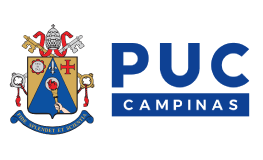Lines of Research:
- International Cooperation and Human Rights
The purpose of this Line of Research is to investigate the repercussions of international cooperation among independent states and the relationship between these and other international actors and their agendas, from the perspective of their effects on the internal legal system, especially concerning the formulation of policies and legislative, judicial and administrative activities. This line investigates the content of cooperative acts between sovereign states and agreements between states and other international actors, as the legal basis of international cooperation itself, considering international cooperation as the set of legal and political governance instruments for access to justice and for solving international problems of economic, social, cultural or humanitarian nature, promoting and encouraging respect for human rights and fundamental freedoms for all Decree No. 19,841 / 45 – and OAS Charter – Decree 30.544 / 52).
- Human Rights and Public Policy
The aim of this Line of Research is to identify and analyze the relationship between the implementation of public policies and the promotion of human rights at the national level. Public policy theory is understood as a multidisciplinary field through which governmental options for action are analyzed and evaluated, among other things, to promote or guarantee rights. In this way, public policies, after being designed and formulated, are broken down into plans, programs, projects, databases or information and research systems, which, once put into action, are implemented and are subjects to systems of evaluation, monitoring and, ultimately, jurisdictional control.
Curricular Structure
For the completion (*) of the Master in Law and to obtain the Master’s degree, a total of 32 credits are required, distributed as follows:
1) 02 compulsory subjects of 03 credits, making a total of 06 credits;
2) 04 elective disciplines of 03 credits, making a total of 12 credits;
3) 03 Modules of Advanced Research Seminar (ARS) – compulsory, making a total of 06 credits;
4) Approval in Qualification Exam: until the end of the third semester of the Master’s course, the student must submit his dissertation project to a Qualification Exam.
5) Dissertation: 08 credits.
(*) In order to obtain the Master’s degree, in addition to fulfilling the credits listed above the student must fully comply with the provisions of the General Regulations of Stricto Sensu Graduate Programs. The compulsory subjects are specified below:- Human Rights and Jurisdiction- Right to Social Development in International and Internal Orders The minimum duration of the Master in Law is 12 months and the maximum is 24 months.In this way, the progression of the course is distributed as follows:
| 1st semester | 2nd semester | 3rd semester | 4th semester |
|---|---|---|---|
| Compulsory (1) | Elective (1) | Elective (3) | Supervision |
| Compulsory (2) | Elective (2) | Elective (4) | – |
| ARS I | ARS II | ARS III | – |
| Supervision | Supervision | Supervision | – |
Objectives
The Stricto Sensu Law Postgraduate Program has as main objective to qualify its students for research and teaching in the area of Law.
The Program, at master’s level, has the following specific objectives:
a) To confer on students the degree of master of Law;b) To train researchers and professors to work in institutions of higher education, research and also in governmental and non-governmental organizations;c) To enable the researcher to understand the Law from a critical perspective, within the scope of International, Integration and Internal Law;d) To contribute to the continuous development of research in Law, especially in the area of human rights and social development;(e) To stimulate research capacity and improve vocational training by developing research methods;f) To stimulate dogmatic, systematic, analytical and critical reflection and the production of research in law;g) To provide, on a solid basis, the expansion of the Post-Graduation in Law, aiming, in future, to institute a Doctoral Program in Law at PUC-Campinas;h) To consolidate PUC-Campinas as a reference in law research at both international and national levels.
Contacts
Phone: +55 (19) 3343-7345
E-mail: ppgdireito.cchsa@puc-campinas.edu.br
History
The Master’s Degree in Law was recommended by CAPES at the 181st Meeting of the Technical and Scientific Council of Higher Education (CTC-ES), held from November 28 to 30, 2018.








